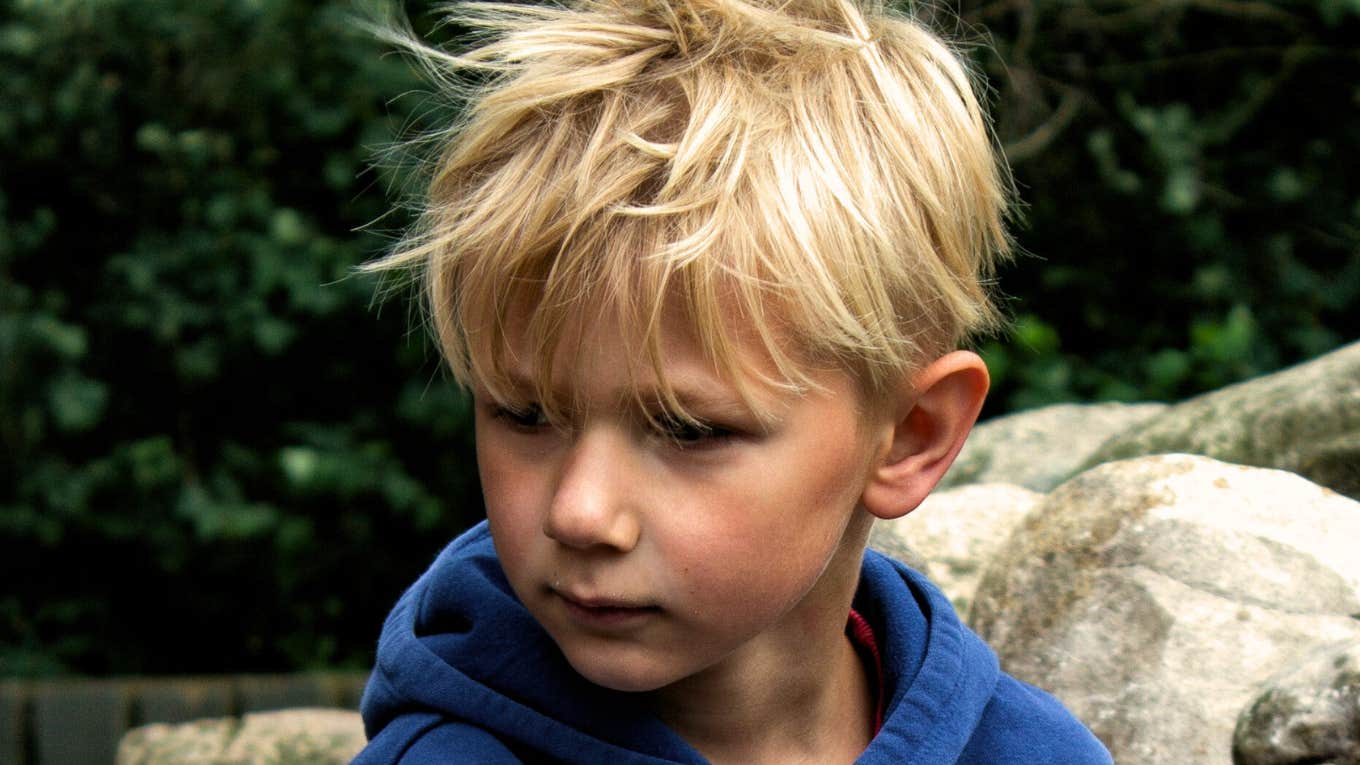6 Quiet Signs You Grew Up As A Lost Child And It's Affecting You Now, According To Psychologist
What your role in your dysfunctional family says about how you operate as an adult.
 Patrick Echers | Unsplash
Patrick Echers | Unsplash Children need to be nurtured, seen, heard, cared for, respected, and above all, loved. All of this is necessary to develop a healthy mind. Parenting is not an easy task, therefore if you find your child to be “too” easy to parent, there may be an issue at hand — they may be a lost child.
The "lost child" is one of a few common dysfunctional family roles which also includes roles such as the hero, the golden child, and the scapegoat. Each family role shapes how you view and interpret the world around you, with each person picking up different "jobs" and habits from their family dynamic that often persist into adulthood.
According to the CTPSD Foundation, lost children "spend an excessive amount of time hiding in plain sight." They tend to become invisible to their families. They lack closeness with their parents and tend to not receive much attention or nurture that they need to thrive. These children live in their minds as an escape from their surroundings, as stressful situations within the family dynamic cause fear and silence.
In a TikTok video, Holistic Psychologist Dr. Nicole LePera demonstrates what it's like to be a lost child in a dysfunctional family. Childhood trauma continues to affect people even after they become adults and leave home.
As Andrea Brandt, Ph.D., has explained, "Children make meaning out of the events they witness and the things that happen to them, and they create an internal map of how the world is." She added that failure to recognize the trauma and take the steps to heal it can "damage their ability to function as adults."
Here are the quiet signs you grew up as a lost child and it's affecting you now:
1. You're overly independent
While independence is a positive trait, children should not have to take care of themselves. However, lost children learn early on to be self-reliant. These children are seen as easy to parent because “they take care of themselves,” according to Dr. LePera. In reality, the children are struggling because they aren’t receiving the care and attention they need.
In adulthood, this often leads to hyper-independence, which shows up as an inability to ask for help, being hard on yourself, and discounting your feelings.
2. You struggle to regulate your emotions
 fizkes / Shutterstock
fizkes / Shutterstock
There’s nothing wrong with being sensitive, however, children who have higher levels of sensitivity most likely have dealt with a great deal of stress and emotional vulnerability. Because these children have to raise themselves in an environment full of chaos, they lack a fundamental understanding of their emotions.
Since lost children are out of tune with their feelings and emotions, it’s easier to get them upset or frustrated because they lack strong emotional regulation. According to research, “Denying their feelings and avoiding anger is usually par for the course, as well as never learning adult emotional intimacy.”
Lacking the ability to regulate your emotions, is something that you will carry with you until you feel the safety to do so.
3. You daydream a lot
For children who grow up in dysfunctional households, distractions are needed to keep them from feeling like a burden to their families. Children who tend to daydream a lot are likely to do it to distract themselves, and to create a desirable peaceful environment that they don’t receive elsewhere.
Daydreaming creates fantasies that could be beneficial to children as they’re able to escape from consistent stress.
4. You tend to keep to yourself
Staying away from family and keeping to yourself is a common thing seen in lost children. They don’t want to burden their family, they don’t want to get yelled at, they don’t want to experience stress... the list goes on.
Just because children keep to themselves, that doesn’t mean that they want to. It’s often a defense mechanism to keep themselves away from stress and avoid conflict. According to LePera, "When lost children are under stress, they tend to withdraw themselves from the situation, they stay quiet to avoid conflict and confrontation at all costs."
5. You have a difficult time with love
 StockPhotoDirectors / Shutterstock
StockPhotoDirectors / Shutterstock
According to the CPTSD Foundation, former lost children "might go from relationship to relationship searching for the family [they] did not have or form no relationships at all. Their problems with relationships are directly related to their treatment in childhood.”
Adults who were lost children are more likely to try to find comfort and family within their relationships. It’s also common for adult lost children to have severe trust issues and feel the need to have full independence which can cause conflict in relationships.
6. You sacrifice yourself for others
Adult lost children are very generous and selfless. They tend to lose themselves as they give so much to others. Adult lost kids are very likely to get taken advantage of as they never ask for much, and they give all of themselves.
Despite the challenges of growing up as a lost child, it’s possible to work through these issues and live a fulfilling life. Creating a positive environment for yourself with friends and people that you can trust will make the greatest difference in finding the support that is needed to grow and develop a healthier mind.
Cortney Crowell is a freelance writer and frequent contributor to YourTango who covers entertainment, news, and human-interest stories.

